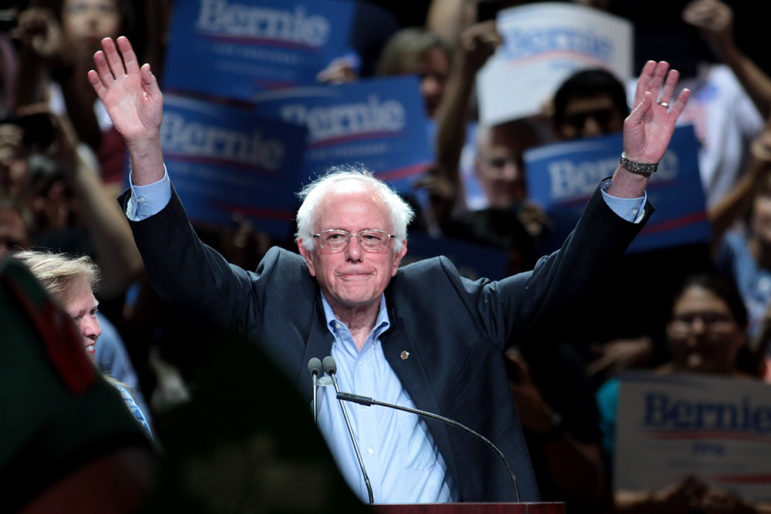
Former presidential candidate and Senator Bernie Sanders (I-VT) and his supporters launched the promised post-primary initiative called Our Revolution last Wednesday. The 501(c)(4) social welfare organization is intended to empower millions to continue their fight for progressive change. The live stream of the launch reached more than 2,600 watch parties in homes and meeting places across the country. Sanders’s new book, Our Revolution: A Future to Believe In, will be on sale November 15th, a few days following the general election.
Our Revolution vows to set out with three main goals: to revitalize American democracy by bringing millions of both working and young individuals into the political system; empower the next generation of progressive leaders; and elevate political consciousness by educating the public about issues confronting the country.
By staying in the race as long as he did and by staying engaged through the primary, Sanders laid the groundwork for Our Revolution by pushing the Democratic Party to pass the most progressive platform in its history. The Our Revolution “movement” will carry on that work initially by supporting seven ballot initiatives and more than 100 candidates this year.
On August 23rd, Politico reported that the “the revolution is already tearing itself apart.” The board, chaired by Sanders’s wife Jane, was troubled about how the group might handle “dark money” issues from anonymous groups. The 501(c)(4) social welfare organization structure contradicts the pride the campaign took in its average contribution of $27 during the primary. Our Revolution is permitted by law to collect unlimited amounts of anonymous money. Such organizations may engage in some political activities, so long as that is not its primary activity. Organizing for Action is a similar organization that arose following President Barack Obama’s 2012 campaign.
Underlying all this, though, are deep, still-raw tensions left over from the presidential campaign which by the end had become a war between the older aides who felt that their experience and planning explained Sanders’ ability to translate his message into votes, and younger aides who felt dismissed by older aides whom they felt didn’t appreciate how much of what Sanders achieved was because of their digital and organizing prowess, which turned the senator into a sensation.
Sign up for our free newsletters
Subscribe to NPQ's newsletters to have our top stories delivered directly to your inbox.
By signing up, you agree to our privacy policy and terms of use, and to receive messages from NPQ and our partners.
Sanders’s decision to hire his former campaign manager, Jeff Weaver, to lead the new organization caused eight of his key staffers (more than half his staff) to resign in a dispute over the group’s leadership and legal structure.
NPR provides Weaver’s justification for the structure of Our Revolution.
But Weaver says there is a difference between a presidential campaign and a group like Our Revolution. In a presidential race, he said, “You don’t want somebody elected, who is beholden to wealthy individuals or interests.” But in the case of a nonprofit like Our Revolution, Weaver added, “I have nothing to offer people in return for their support” other than pushing forward the progressive goals and agenda that those who supported Sanders share.
Not everyone agrees—namely, the staff that abruptly left the organization and likely many of the organization’s would-be supporters. Sanders will not have a leadership role in Our Revolution because, as a U.S. senator, he is constrained by limitations on fundraising for other candidates. As for Weaver, Sanders and he go back to 1986, when Sanders recruited him to run his gubernatorial campaign in Vermont. About Weaver, Sanders said this at the launch of Our Revolution: “He had just been expelled from Boston University for protesting the racist apartheid policies that then existed in South Africa. I thought those were pretty good qualifications for the job.” Weaver is staying.
Turmoil is, of course, not foreign to the internal dynamics of movements, but it always needs to be honestly interrogated for the truths it encompasses. Our Revolution, off to a bit of a rocky start, will have a lot to prove.—James Schaffer












